- Holiday Rentals
- Restaurants
- Things to do
- Mumbai Tourism
- Mumbai Hotels
- Mumbai Guest House
- Mumbai Holiday Homes
- Mumbai Flights
- Mumbai Restaurants
- Mumbai Attractions
- Mumbai Travel Forum
- Mumbai Photos
- All Mumbai Hotels
- Mumbai Hotel Deals
- Last Minute Hotels in Mumbai
- Mumbai Motels
- Mumbai Hostels
- Mumbai Campsites
- Business Hotels in Mumbai
- Spa Resorts in Mumbai
- Family Hotels in Mumbai
- Luxury Hotels in Mumbai
- Romantic Hotels in Mumbai
- Mumbai Green Hotels
- Resorts in Mumbai
- Mumbai Beach Hotels
- 5-stars Hotels in Mumbai
- 4-stars Hotels in Mumbai
- 3-stars Hotels in Mumbai
- The Luxury Collection Hotels in Mumbai
- Ginger Hotels in Mumbai
- OYO Hotels in Mumbai
- Trident Hotels in Mumbai
- Treebo Hotels in Mumbai
- FabHotels in Mumbai
- Ramada Hotels in Mumbai
- JW Marriott Hotels in Mumbai
- Hyatt Hotels in Mumbai
- InterContinental (IHG) Hotels in Mumbai
- Wyndham Hotels in Mumbai
- Marriott Hotels in Mumbai
- Mumbai Hotels with Parking
- Mumbai Hotels with a Pool
- Pet Friendly Hotels in Mumbai
- Western Suburbs Hotels
- Andheri Hotels
- Andheri East Hotels
- South Mumbai Hotels
- Marol Hotels
- Vile Parle East Hotels
- Juhu Hotels
- Bandra East Hotels
- Bandra Kurla Complex Hotels
- Eastern Suburbs Hotels
- Discount Hotels in Mumbai
- Honeymoon Hotels in Mumbai
- Wedding Hotels in Mumbai
- Suite Hotels in Mumbai
- Apartment Hotels in Mumbai
- Mumbai Hotels with Hot Tubs
- Mumbai Hotels with Smoking Rooms
- Luxury Spa Hotels in Mumbai
- Mumbai Hotels with Nightclubs
- Boutique Spa Hotels in Mumbai
- Hotels near Gateway of India
- Hotels near Bandra-Worli Sea Link
- Hotels near Marine Drive
- Hotels near Shree Siddhivinayak
- Hotels near Chhatrapati Shivaji Terminus
- Hotels near Sri Sri Radha Gopinath Temple
- Hotels near Colaba
- Hotels near Nariman Point
- Hotels near Juhu Beach
- Hotels near Elephanta Caves
- Hotels near (BOM) Mumbai Airport
- White Musk Resort
- The Cape Goa
- Della Resorts
- Ownland Resort
- Le Roi Floating Huts & Eco Rooms
- Morgan House Tourist Lodge
- River Village Resort
- Club Mahindra Resort - Tungi, Lonavala, Maharashtra
- Discovery Village
- Parmarth Niketan Ashram
- Ruppi's Hotel & Resort
- Best Western Resort Country Club
- Leonia Holistic Destination
- Govardhan EcoVillage
- Popular All-Inclusive Resorts
- Popular Beach Resorts
- Popular Family Resorts
- Popular All-Inclusive Hotels
- Popular Hotels With Waterparks
- Popular Honeymoon Resorts
- Popular Luxury Resorts
- Popular All-Inclusive Family Resorts
- Popular Golf Resorts
- Popular Spa Resorts
- Popular Cheap Resorts
- All Mumbai Restaurants
- BBQ Restaurants with Delivery in Mumbai
- Cafés in Mumbai
- Chinese Restaurants in Mumbai
- European Restaurants with Buffet in Mumbai
- Fast Food Restaurants in Mumbai
- Gluten Free Restaurants in Mumbai
- Indian Restaurants in Mumbai
- Italian Restaurants for Large Groups in Mumbai
- Italian Restaurants in Mumbai
- Pizza in Mumbai
- Seafood Restaurants in Mumbai
- Vegan Restaurants in Mumbai
- Vegetarian Restaurants in Mumbai
- Best Tempura in Mumbai
- Best Cod in Mumbai
- Best Quail in Mumbai
- Best Scallops in Mumbai
- Best Korean Fried Chicken in Mumbai
- Best Hot Pots in Mumbai
- Best Kung Pao Chicken in Mumbai
- Best Mac and cheese in Mumbai
- Best Tortellini in Mumbai
- Best Grilled cheese in Mumbai
- Best Donuts in Mumbai
- Best Mandarin Duck in Mumbai
- Best Bread Pudding in Mumbai
- Best Schnitzel in Mumbai
- Best Noodle in Mumbai
- Breakfast Restaurants in Mumbai
- Lunch Restaurants in Mumbai
- Dinner Restaurants in Mumbai
- Bakeries in Mumbai
- Coffee & Tea in Mumbai
- Desserts in Mumbai
- Food Delivery Restaurants in Mumbai
- Kid Friendly Restaurants in Mumbai
- Late Night Restaurants in Mumbai
- Restaurants for Group Dining in Mumbai
- Restaurants for Special Occasions in Mumbai
- Restaurants with Outdoor Seating in Mumbai
- Romantic Restaurants in Mumbai
- Asian Restaurants in Worli/Prabhadevi
- Bandra West Restaurants
- Brunch Restaurants in Lower Parel
- Desserts in Fort/Kala Ghoda
- Gateway of India Restaurants
- Hamburgers in Bandra West
- Late Night Seafood Restaurants in Fort/Kala Ghoda
- Vile Parle East Restaurants
- GreenLeaders
- Things to Do
- Holiday homes
- Travel Stories
- Add a Place
- Travel Forum
- Travellers' Choice
- Help Centre
- Asia
- India
- Maharashtra
- Mumbai
- Mumbai Restaurants

Ratings and reviews
Food and ambience, location and contact.
This is primarily a re-fuelling joint - so dont visit expecting ambiance and the works - visiting Yacht after ages, decently cold beers & booze snacks, their fried sardines was a great surprise. Great Value For Money place to hang with the boys or girls.
This place is really, really cheap to eat and drink. It is a very local bar but still fine for women to go to and even kids are allowed.
Amazing place for a drink. The ambience is not much to talk about as it is a typical Shetty bar. But one of the only few place that you will spot women entering such establishments. A must visit if you want to experince these kind... of bars. The food is good and cheap. The alcohol prices are down right close to MRP and to top that you can smoke inside(except the AC section, Yes they have an AC section with different prices might be like 20-30rs difference). You can visit it alone or with your friends it's always crowded in the evening. Food you should try is chakli schezwan or garlic channa for nibbles, chicken lollypop and paneer crispy for starters and for a meal probably the butter chicken as I haven't tried anything else but I'm pretty sure if you choose anything else it would at least be decent. More

No money no fear! Yacht is here:) Great place if you want to grab a few drinks but don't want to burn a hole in your pocket. I really like the Masala Papad here too!
One of the old haunts in bandra for the locals. This place has the old chai stall charm and the prices are still very economical
Yacht is one of the most unique places in Bandra where you'd mainly find college or young office goers sit over a round of drinks. It is way economical than when you'd probably sit in any restobar and the atmosphere beats most of the posh... bars in the city. You'd certainly get a sniff of the Bandra lingo here and once you get used to this place you're never wanna leave. More
YACHT, Mumbai - Bandra West - Restaurant Reviews, Phone Number & Photos - Tripadvisor
- Holiday Rentals
- Restaurants
- Things to do
- Mumbai Tourism
- Mumbai Accommodation
- Mumbai Bed and Breakfast
- Mumbai Holiday Rentals
- Mumbai Flights
- Mumbai Restaurants
- Mumbai Attractions
- Mumbai Travel Forum
- Mumbai Photos
- All Mumbai Hotels
- Mumbai Hotel Deals
- Last Minute Hotels in Mumbai
- Mumbai Motels
- Mumbai Hostels
- Mumbai Campsites
- Business Hotels Mumbai
- Family Hotels Mumbai
- Spa Resorts Mumbai
- Luxury Hotels Mumbai
- Romantic Hotels Mumbai
- Mumbai Green Hotels
- Mumbai Resorts
- Mumbai Beach Hotels
- 5-stars Hotels in Mumbai
- 4-stars Hotels in Mumbai
- 3-stars Hotels in Mumbai
- The Luxury Collection Hotels in Mumbai
- Ginger Hotels in Mumbai
- OYO Hotels in Mumbai
- Trident Hotels in Mumbai
- Treebo Hotels in Mumbai
- FabHotels in Mumbai
- Ramada Hotels in Mumbai
- JW Marriott Hotels in Mumbai
- Hyatt Hotels in Mumbai
- InterContinental (IHG) Hotels in Mumbai
- Wyndham Hotels in Mumbai
- Marriott Hotels in Mumbai
- Mumbai Hotels with Parking
- Mumbai Hotels with a Pool
- Pet Friendly Hotels in Mumbai
- South Mumbai Accommodation
- Western Suburbs Accommodation
- Colaba Accommodation
- Andheri Accommodation
- Andheri East Accommodation
- Wellington Pier Accommodation
- Nariman Point Accommodation
- Juhu Accommodation
- Gateway of India Accommodation
- Marol Accommodation
- Boutique Hotels Mumbai
- Cheap Hotels Mumbai
- Downtown Mumbai Hotels
- Hotels with Balconies in Mumbai
- Mumbai Apartment Hotels
- Hotels with Shuttle in Mumbai
- Mumbai Adventure Hotels
- Mumbai Hotels with Banquet Hall
- Mumbai Hotels with Bike Rentals
- Mumbai Hotels with Game Room
- Hotels near Gateway of India
- Hotels near Bandra-Worli Sea Link
- Hotels near Marine Drive
- Hotels near Shree Siddhivinayak
- Hotels near Chhatrapati Shivaji Terminus
- Hotels near Sri Sri Radha Gopinath Temple
- Hotels near Colaba
- Hotels near Nariman Point
- Hotels near Juhu Beach
- Hotels near Elephanta Caves
- Hotels near (BOM) Mumbai Airport
- Daydream Island Resort
- Imperial Hotel Gold Coast
- Bali Dynasty Resort Hotel
- Phuket Marriott Resort & Spa, Merlin Beach
- InterContinental Hayman Island Resort
- Shangri-La Yanuca Island, Fiji
- Legian Beach Hotel
- Reef View Hotel
- Grand Hyatt Bali
- Fitzroy Island Resort
- Mana Island Resort
- Sandfire Roadhouse and Caravan Park
- The Jayakarta Bali Beach Resort
- The Apurva Kempinski Bali
- Castaway Island Fiji
- Popular All-Inclusive Resorts
- Popular Beach Resorts
- Popular Family Resorts
- Popular All-Inclusive Hotels
- Popular Hotels With Waterparks
- Popular Honeymoon Resorts
- Popular Luxury Resorts
- Popular All-Inclusive Family Resorts
- Popular Golf Resorts
- Popular Spa Resorts
- Popular Cheap Resorts
- All Mumbai Restaurants
- BBQ Restaurants with Delivery in Mumbai
- Cafés in Mumbai
- Chinese Restaurants in Mumbai
- European Restaurants with Buffet in Mumbai
- Fast Food Restaurants in Mumbai
- Gluten Free Restaurants in Mumbai
- Indian Restaurants in Mumbai
- Italian Restaurants for Large Groups in Mumbai
- Italian Restaurants in Mumbai
- Pizza in Mumbai
- Seafood Restaurants in Mumbai
- Vegan Restaurants in Mumbai
- Vegetarian Restaurants in Mumbai
- Best Tempura in Mumbai
- Best Cod in Mumbai
- Best Quail in Mumbai
- Best Scallops in Mumbai
- Best Korean Fried Chicken in Mumbai
- Best Hot Pots in Mumbai
- Best Kung Pao Chicken in Mumbai
- Best Mac and cheese in Mumbai
- Best Tortellini in Mumbai
- Best Grilled cheese in Mumbai
- Best Donuts in Mumbai
- Best Mandarin Duck in Mumbai
- Best Bread Pudding in Mumbai
- Best Schnitzel in Mumbai
- Best Noodle in Mumbai
- Breakfast Restaurants in Mumbai
- Lunch Restaurants in Mumbai
- Dinner Restaurants in Mumbai
- Bakeries in Mumbai
- Coffee & Tea in Mumbai
- Desserts in Mumbai
- Food Delivery Restaurants in Mumbai
- Kid Friendly Restaurants in Mumbai
- Late Night Restaurants in Mumbai
- Restaurants for Group Dining in Mumbai
- Restaurants for Special Occasions in Mumbai
- Restaurants with Outdoor Seating in Mumbai
- Romantic Restaurants in Mumbai
- Asian Restaurants in Worli/Prabhadevi
- Bandra West Restaurants
- Brunch Restaurants in Lower Parel
- Desserts in Fort/Kala Ghoda
- Gateway of India Restaurants
- Hamburgers in Bandra West
- Late Night Seafood Restaurants in Fort/Kala Ghoda
- Vile Parle East Restaurants
- GreenLeaders
- Things to Do
- Travel Stories
- Rental Cars
- Add a Place
- Travel Forum
- Travellers' Choice
- Help Centre
- Asia
- India
- Maharashtra
- Mumbai
- Mumbai Restaurants
Ratings and reviews
Food and ambience, location and contact.
This is primarily a re-fuelling joint - so dont visit expecting ambiance and the works - visiting Yacht after ages, decently cold beers & booze snacks, their fried sardines was a great surprise. Great Value For Money place to hang with the boys or girls.
This place is really, really cheap to eat and drink. It is a very local bar but still fine for women to go to and even kids are allowed.
Amazing place for a drink. The ambience is not much to talk about as it is a typical Shetty bar. But one of the only few place that you will spot women entering such establishments. A must visit if you want to experince these kind... of bars. The food is good and cheap. The alcohol prices are down right close to MRP and to top that you can smoke inside(except the AC section, Yes they have an AC section with different prices might be like 20-30rs difference). You can visit it alone or with your friends it's always crowded in the evening. Food you should try is chakli schezwan or garlic channa for nibbles, chicken lollypop and paneer crispy for starters and for a meal probably the butter chicken as I haven't tried anything else but I'm pretty sure if you choose anything else it would at least be decent. More

No money no fear! Yacht is here:) Great place if you want to grab a few drinks but don't want to burn a hole in your pocket. I really like the Masala Papad here too!
One of the old haunts in bandra for the locals. This place has the old chai stall charm and the prices are still very economical
Yacht is one of the most unique places in Bandra where you'd mainly find college or young office goers sit over a round of drinks. It is way economical than when you'd probably sit in any restobar and the atmosphere beats most of the posh... bars in the city. You'd certainly get a sniff of the Bandra lingo here and once you get used to this place you're never wanna leave. More
YACHT, Mumbai - Bandra West - Restaurant Reviews, Photos & Phone Number - Tripadvisor
Planning a trip to Mumbai?
Foursquare can help you find the best places to go to..
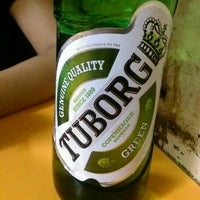
Yacht Bar & Restaurant
- good service
Related Searches
- yacht bar & restaurant mumbai •
- yacht bar & restaurant mumbai photos •
- yacht bar & restaurant mumbai location •
- yacht bar & restaurant mumbai address •
- yacht bandra mumbai •
- yacht bar and restaurant mumbai •
- yacht, bandra mumbai •
- yatch restaurant and bar mumbai •
- yacht bar & restaurant bandra west mumbai
- Your Privacy Choices
- Bahasa Indonesia
- Los Angeles
- Philadelphia
- San Francisco
- Washington, D.C.
- Great Britain
- Netherlands
- Philippines
- More Great Places in Mumbai:
Foursquare © 2024 Lovingly made in NYC, CHI, SEA & LA
You might also like

Bar · ₹₹
St Andrews Church (Bandra West)
"Beef Chilly😍😘"
Pali Hill (Bandra)
"Amazing lip smacking food and sasti daru👍wat more can any1 ask for...luv der prawns biryani with old monk"
Pali Village, (Bandra (W))
"Enjoy alcohol at unbelievably cheap rates with stuffed mushroom, bacon wrapped prawns, Fish etc. Reach max by 8.30 to avoid a long wait. Prefect for pre drinks before you hit a party spot!!"
Appears on 1 list

Created by Frances James 50 items
Top places in the area
Is this your business claim it now..
Make sure your information is up to date. Plus use our free tools to find new customers.
You must enable JavaScript to use foursquare.com
We use the latest and greatest technology available to provide the best possible web experience. Please enable JavaScript in your browser settings to continue.
Download Foursquare for your smart phone and start exploring the world around you!

Enter your email id

Popular Cities

- Bahadurgarh
- Bhadohi, Uttar Pradesh
- Bhiwandi, Maharashtra
- Chandannagar
- Channapatna
- Chhattisgarh
- Chikkaballapur
- Daman and Diu
- Dharamshala
- Farrukhabad
- Krishnagiri
- Kurukshetra
- Muktsar, Punjab
- Muzaffarnagar
- Muzaffarpur
- North 24 Parganas
- Perintalmanna
- Pondicherry
- Pudukkottai
- Purba Medinipur
- Rameshwaram
- Shahjahanpur
- Shri Ganganagar, Rajasthan
- Siddhartnagar
- South 24 Parganas
- Visakhapatnam
- Vizianagaram
- Yamuna Nagar

Sorry, Not Available For Table Reservation!
Top Restaurants in Mumbai | See All

Get the EazyDiner App
Earn 200 EazyPoints on registration.
Download Now

Food trends (Blog)
Partner offers
Download App
Table booking
Fast food near me
Prepaid deals near me
Prime Subscription
EazyPoints Redemption
Refer & Earn
Terms & Conditions
Privacy Policy
List your Restaurant
Livetable - Restaurants SaaS
Food Critics
Advisory council
Book Best Restaurants in Delhi NCR | Mumbai | Bengaluru | Chennai | Pune | Kolkata | Dubai | Goa | Ahmedabad | Jaipur | Agra | Hyderabad | Lucknow | Kochi | Coimbatore | Ranchi | Patna | Amritsar | Bhubaneswar | Indore | Ludhiana | Mangalore | Mysuru | Thiruvananthapuram | Nagpur | Udaipur | Madurai | Abu Dhabi | Chandigarh Tricity | All Cities
Restaurant name: Yacht, Cuisines: Indian, Chinese, Delivers in: Currently closed for delivery, Cost is: ₹500 for two,
Indian, Chinese
Bandra West
- Wish you were
- ₹500 for two

10% OFF UPTO ₹200

FLAT ₹75 OFF

15% OFF UPTO ₹300

FLAT ₹30 OFF

FLAT ₹150 OFF
Non-veg item. Egg Boiled. Costs: 30 rupees, Swipe right to add item to cart.
Non-veg item. Egg Bhurji. Costs: 50 rupees, Swipe right to add item to cart.
Non-veg item. Egg Omelette. Costs: 50 rupees, Swipe right to add item to cart.
Egg Omelette
Non-veg item. Egg Half Fry. Costs: 50 rupees, Swipe right to add item to cart.
Egg Half Fry
Non-veg item. Egg Pakora. Costs: 60 rupees, Swipe right to add item to cart.
Non-veg item. Egg Masala. Costs: 100 rupees, Swipe right to add item to cart.
Non-veg item. Cheese Omelette. Costs: 100 rupees, Swipe right to add item to cart.
Cheese Omelette
Non-veg item. Egg Chilli. Costs: 100 rupees, Swipe right to add item to cart.
Why the U.S. put a $1 million bounty on a Russian yacht’s alleged manager
On Sept. 3, 2020, the staff of a $90 million yacht placed an order with a U.S. company for a set of luxury bathrobes that came to $2,624.35.
For roughly two years before that, according to federal prosecutors, the yacht’s management had been falsely claiming it was working for a boat named “Fanta.” But the luxury bathrobes came embroidered with a monogram that, prosecutors said, revealed the yacht’s true identity: “Tango.”
That was a problem, officials say in court papers, because Tango was owned by a Russian billionaire under U.S. sanctions, and doing business on his behalf violated federal law.
Late last month, U.S. authorities unveiled a $1 million reward for information leading to the arrest and or conviction of the man they say was running the yacht staff and orchestrated the deception with the robes — Vladislav Osipov, 52, a Swiss-based businessman from Russia. In a new indictment , federal prosecutors say Osipov misled U.S. banks and companies into doing business with the Tango yacht despite the sanctions on the Russian owner, whom the Justice Department has identified as billionaire Viktor Vekselberg .
Osipov has denied the allegations. Osipov’s attorney has said that the government has failed to demonstrate that Vekselberg owned the yacht, and that its management was therefore not a sanctions violation.
The reward offer for Osipov reflects the latest stage in the evolution of the West’s broader financial war against Russia two years into the war in Ukraine, as the United States and its allies increasingly target intermediaries accused of enabling Russian oligarchs to circumvent sanctions.
Many Russians close to President Vladimir Putin have been under sanctions dating to 2014, when Russia seized Crimea from Ukraine and sent proxy forces into that country’s eastern Donbas region. When Russia invaded Ukraine in 2022, President Biden vowed to deal a “crushing blow” with a barrage of new sanctions on financial institutions, industries, business executives and others tied to the Kremlin. But roughly two years later, Russia’s economy has proved surprisingly resilient after the nation poured tens of billions of dollars into ramping up its military industry. Moscow has also worked around the sanctions, finding new third parties to supply it with critical military and industrial hardware, as well as countries beyond Europe to buy its oil.
Now, the West is trying to increase the reach of its sanctions by digging deeper into Russian supply chains. Late last month, the Treasury Department announced more than 500 new sanctions targeting Russia , primarily on military and industrial suppliers. The Justice Department also announced charges against two U.S.-based “facilitators” of a Russian state banker who is under sanction, as well as the guilty plea of a dual national based in Atlanta who was accused of laundering $150 million through bank accounts and shell companies on behalf of Russian clients.
Prioritizing criminal charges against — and the arrests of — Western employees of Russia’s elites represents a new escalation of the U.S. financial war against Putin, experts say. One Moscow businessman, speaking on the condition of anonymity for fear of retribution, said many influential Russians are concerned about the arrest of two associates of Andrey Kostin, the head of VTB, Russia’s second-biggest state bank. These associates, Vadim Wolfson and Gannon Bond, were charged with helping Kostin evade sanctions by maintaining a $12 million property in Aspen, Colo., for Kostin’s benefit while concealing his ownership. Kostin has said that the charges of sanctions evasion against him are “unfounded” and that he has not violated any laws . Bond has pleaded not guilty; Wolfson hasn’t made an initial court appearance yet.
Wolfson, also known as Vadim Belyaev, had been a Russian billionaire until the Russian government took over his bank in 2017. Bond, 49, is a U.S. citizen from Edgewater, N.J. For all Russians living abroad and working with people in Russia, the threat of criminal charges is a much more worrying prospect than the sanctions imposed by the Treasury Department last month against hundreds of individuals and entities, the businessman said, in part because sanctions are far easier to dodge than criminal charges.
“What you have seen through today’s public announcements are our efforts at really targeting the facilitators who possess the requisite skill set, access, connections that allow the Russian war machine [and] the Russian elites to continually have access to Western services and Western goods,” David Lim, co-director of the Justice Department’s KleptoCapture task force, which is tasked with enforcing U.S. sanctions over Russia’s invasion of Ukraine, told reporters last month.
Thad McBride, an international trade partner at the law firm Bass Berry & Sims, said the crackdown on intermediaries reflected the natural evolution of the U.S. sanctions campaign in response to Russian adjustments.
“It seems to me they have gone through a comprehensive list of the oligarchs, and you can debate whether or not it’s had a meaningful impact on the Russian war effort,” McBride said. “Because they’re getting smarter about who’s who, they’re finding other people who play meaningful roles in these transactions, even though they’re not showing up in the headlines.”
The charges against Osipov related to his alleged management of the Tango yacht illustrate the mounting potential consequences for people in Europe and the United States who attempt to do business with Russians targeted by Western allies, as well as the opaque structures allegedly employed by those seeking to evade sanctions.
With a net worth estimated by Forbes in 2021 at $9 billion, Vekselberg, 66, has long drawn scrutiny from the West — and sought to safeguard his wealth. He made his initial fortune in aluminum and oil in Russia’s privatization of the 1990s and then expanded into industrial and financial assets in Europe, the United States and Africa, with Putin’s blessing. In addition to the yacht, federal prosecutors say, Vekselberg acquired $75 million worth of properties, including apartments on New York’s Park Avenue and an estate in the Long Island town of Southampton.
Vekselberg, who declined to comment for this article, has not been criminally charged by the Justice Department. In a 2019 interview with the Financial Times, he denounced the sanctions as arbitrary and harmful for international business, saying he had been targeted just because he was Russian and rich and knows Putin.
In April 2018, the Treasury Department under the Trump administration sanctioned Vekselberg and six other Russian oligarchs as part of broader financial penalties over the Kremlin’s invasion of Crimea, support for President Bashar al-Assad in Syria and interference in the 2016 U.S. presidential election. Vekselberg was also targeted for his work for the Kremlin as chairman of the Skolkovo Foundation, an attempt to create Russia’s version of the Silicon Valley — evidence that appeared to undermine the Russian businessman’s claims that he operated independently of the Kremlin.
But with Vekselberg’s payments monitored by U.S. banks, according to the federal indictment , Osipov used shell companies and intermediaries to avert the bite of sanctions. Vekselberg kept other major assets out of the reach of U.S. authorities by making use of the Treasury Department’s 50 percent ownership rule, which stipulates that it is illegal to transact with firms only if an owner under sanction controls more than 50 percent of the business.
For example, a month after Treasury imposed sanctions on Vekselberg in April 2018, his Renova Innovation Technologies sold its 48.5 percent stake in Swiss engineering giant Sulzer to Tiwel Holding AG, a group that is nevertheless still “beneficially owned” — meaning, owned in practice — by Vekselberg through Columbus Trust, a Cayman Islands trust, according to Sulzer’s corporate filing. Vekselberg’s longtime right-hand man at Renova, Alexei Moskov, replaced one of Vekselberg’s direct representatives on the board. Moskov told The Washington Post that he stepped down from all his executive positions at Renova Group in 2018 after U.S. sanctions were first imposed and from that moment ceased to be Vekselberg’s employee.
The attempts to circumvent the sanctions appear to have found some success in the U.S. legal system. Columbus Nova, a U.S.-based asset management fund controlling more than $100 million in assets in the U.S. financial and tech industry, is run by Vekselberg’s cousin, Andrew Intrater. The firm battled for more than two years to lift a freeze on Columbus Nova’s assets, imposed by Treasury’s Office of Foreign Assets Control because of the sanctions on Vekselberg, and won, reaching a settlement agreement with the Treasury Department. After renaming itself Sparrow Capital LLC, Columbus Nova successfully argued that Intrater — not Vekselberg — owns the fund. Intrater argued that the company was 100 percent owned by U.S. citizens and that no individual or entity under sanction held any interest in it. Intrater said Columbus Nova had earned fees for managing investment funds owned by Renova. He said he had repeatedly told Treasury he would not distribute any funds to Vekselberg.
Now Osipov, the alleged manager of Vekselberg’s $90 million yacht, is attempting a similar argument as U.S. authorities seek his arrest on charges of bank fraud, money laundering, conspiracy to defraud the United States, and violations of sanctions law.
The federal indictment states that the Tango was owned by a shell corporation registered in the British Virgin Islands that was in turn owned by several other companies. The Virgin Islands shell company, authorities say, was controlled by Osipov, who also served in senior roles for multiple companies controlled by Vekselberg. U.S. officials also say Vekselberg ultimately controlled the other companies that owned the Virgin Islands shell company.
According to the indictment, a Tango official instructed a boat management company in Palma de Mallorca, Spain, to use a false name for the yacht — “Fanta” — to disguise its true identity from U.S. financial institutions and firms, which try to avoid doing business with an entity or person under sanction.
Working at Osipov’s direction, according to the indictment, employees for Tango bought more than $8,000 worth of goods for the yacht that were unwittingly but illegally processed by U.S. firms and U.S. financial institutions, including navigation software, leather basket magazine holders provided by a bespoke silversmith, and web and computing services. The management company running Tango, run by Osipov, also paid invoices worth more than $180,000 to a U.S. internet service provider, federal prosecutors say.
The Tango was seized by the FBI and Spanish authorities in the Mediterranean not long after Russia invaded Ukraine in 2022, and Osipov was first indicted last year. The owner of the Spanish yacht management company hired by Osipov, Richard Masters, 52, of Britain, was criminally charged last year by federal prosecutors with conspiracy to defraud the United States and violating federal sanctions law. A request for comment sent to Masters’ firm was not returned.
But in recent court documents, Osipov’s attorney argues that the yacht was not more than 50 percent owned by Vekselberg, and that the government hasn’t demonstrated it was. Barry J. Pollack, an attorney at Harris, St. Laurent and Wechsler, also says the government never warned Osipov of its novel and “unconstitutional” application of federal sanctions law.
“The government points to no precedent that supports its extraordinary interpretation and cites no authority that allows the traditional rules of statutory construction to be turned on their head,” Pollack wrote in a defense filing. The filing adds: “[Osipov] is not a fugitive because he did not engage in any of the allegedly criminal conduct while in the United States, has never resided in the United States, did not flee from the United States, and has not concealed himself.”
Still, the State Department’s Transnational Organized Crime Rewards Program has said it will provide up to $1 million for information leading to Osipov’s arrest, warning that he may visit Herrliberg, Switzerland; Majorca, Spain; or Moscow.
The case demonstrates the extent of the U.S. commitment to tighten the screws on those seen as aiding Russian elites, even if they themselves are not closely tied to the Kremlin.
“When DOJ levels legal action against an individual or entity, they have quite a bit of evidence, especially because the threshold to press charges for money-laundering and sanctions evasion is so high,” said Kim Donovan, director of the Economic Statecraft Initiative within the Atlantic Council’s GeoEconomics Center. “We’ve had quite a bit of experience targeting Russia directly, and what you’re starting to see is the U.S. go after the facilitators enabling sanctions evasion. That’s where the U.S. is focusing its efforts right now.”

Select Location
- Bandra West
Yacht Restaurant & Bar
Casual Dining . Cost for two: ₹500
Casual Dining Cost for two: ₹500
Bandra West, Mumbai.
Please visit magicpin.in/phonepe/inappview
Ratings & Reviews
Sagar Sargat
5 Followers
20 Nov 2023
Harsh Bhatia
24 Followers
23 Apr 2023
Vandesh Gad
2 Followers
26 Feb 2023
Related Blogs
15 Best Restaurants In Delhi: Let's Walk You Through Delhi's Best Culinary Journey
More like this.
Jogeshwari, Mumbai
Shivsu Chinese Restaurant
Chembur, Mumbai
Social Palladium
Palladium Mall, Mumbai
The Irish House
Industrial Area, Mumbai
Khar Social
Khar, Mumbai
Versova Social
Versova, Mumbai
Capital Social
Bandra Kurla Complex, Mumbai
Link Square Mall, Mumbai
Frozen Bottle - Milkshakes, Desserts And Ice Cream
Lokhandwala Complex, Andheri West, Mumbai
Powai Social
Powai, Mumbai
Deliure & The Eatrium
Mahim, Mumbai
Chicago Pizza
Chakala, Mumbai
Fresh Breakfast
Kurla, Mumbai

Searches leading to this page
New users get ₹500 worth of magicpoints on signup, blog’s buzz.

Sunrise Yachts Sponsor 2011 Moscow International Boat Show (MIBS)
- Inspiration
Related News
Popular news this week, popular news this month, latest news.
- Yacht Charter & Superyacht News >
Written by Mike Smith
Sunrise Yachts, a luxury yacht building company which is based in Turkey, has been made a main sponsor of next year’s 2011 Moscow International Boat Show (MIBS). The four-day Russian yacht show event is currently scheduled to run from April 14-17 at the Moscow’s Crocus exhibition centre.
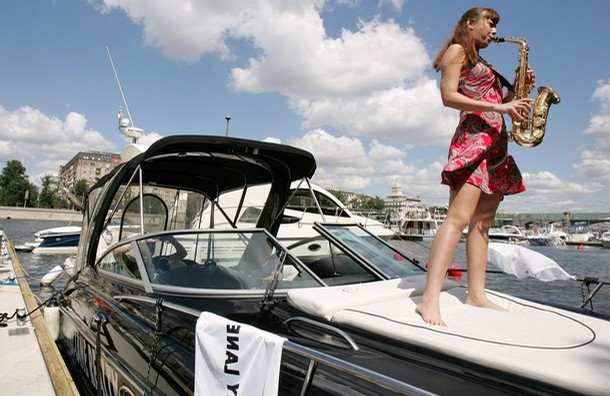
moscow boat show
MIBS is organised by the ITE Group and it is one of Russia’s leading boat shows and is an internationally recognised superyacht event. The show covering everything from small parts and accessories to large superyacht with over 9,000 people and 178 exhibitors attended the last year show.
The Paolo Scanu-designed Sunrise 45 yacht is an ocean-going cruising yacht that was released in 2009 to much acclaim at this was the group’s first-ever model.
Sunrise Yachts was founded in 2007 by the German entrepreneur Herbert P Baum along with the French-British yacht builder Guillaume Roché. The luxury yacht group is based in Antalya, Turkey and utilises a 10,000sq m shipyard facility. Sunrise has two sheds measuring 100m (328ft) x 16m (53ft), as well as a 70m (230ft) x 16m (53ft) fully acclimatized paint shed that can accommodate new-build and refit projects up to 65m (213ft) in length and 1,200 tonnes displacement.
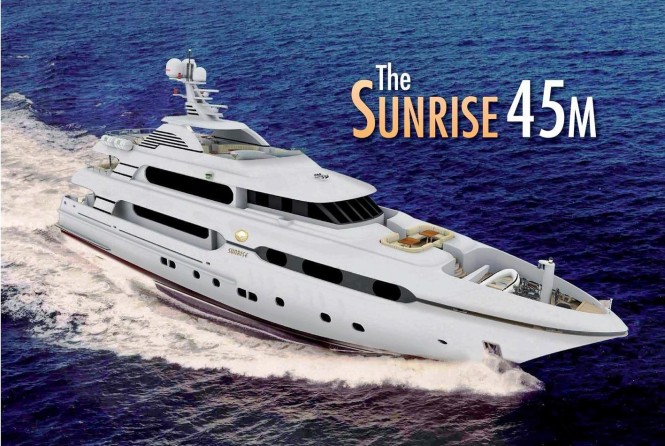
The sunrise 45m superyacht by Sunrise Yachts
Along each side of the yacht-building facility, space is available for long-term sub-contractors with the latest equipment and logistics capabilities, along with air-conditioned storage, ventilation and extraction plants. The shipyard is organized as an “assembler,” based loosely on the car industry’s model, with a small, yet powerful project management team charged with running all the in-house long-term sub-contractors.
Please contact CharterWorld - the luxury yacht charter specialist - for more on superyacht news item "Sunrise Yachts Sponsor 2011 Moscow International Boat Show (MIBS)".
- Charity & Fund Raising
- CharterWorld News
- Classic Yachts
- Coronavirus
- Cruise Ship
- Ecological Yachts
- Expedition Yachts
- Expert Broker Advice
- Feature Superyachts
- Interior Design
- Legal & VAT Yacht Issues
- Luxury Catamarans
- Luxury Gulet
- Luxury Phinisi
- Luxury Trimarans
- Luxury Yacht Design
- Luxury Yachts
- Marinas & Harbours
- Marine Ecology
- Marine Electronics
- Marine Equipment
- Mega Yachts
- Modern Yachts
- Motor Yachts
- New Launch Yachts
- New To Charter
- Open Style Sports Yachts
- Private Jets
- Sailing Yachts
- Social Media
- Sports Yachts
- Superyacht Crew
- Superyacht Photographers
- Superyacht Products & Supplies
- Superyacht Refits
- Superyacht Reviews
- Superyachts
- Uncategorized
- Yacht Builders
- Yacht Charter
- Yacht Charter Destinations
- Yacht Charter Picks
- Yacht Charter Specials
- Yacht Delivered to Owner
- Yacht Designers
- Yacht Events & Boat Shows
- Yacht Fashion
- Yacht Industry News
- Yacht Photos
- Yacht Racing
- Yacht Racing & Regattas
- Yacht Safety Equipment
- Yacht Support Vessels
- Yacht Tenders
- Yacht Videos
- Yachting Associations
- Yachting Awards
- Yachting Business
- Yachts For Charter
- Yachts For Sale
Quick Enquiry
Superyacht news:.
Email Your Yachting News to: news @ charterworld.com
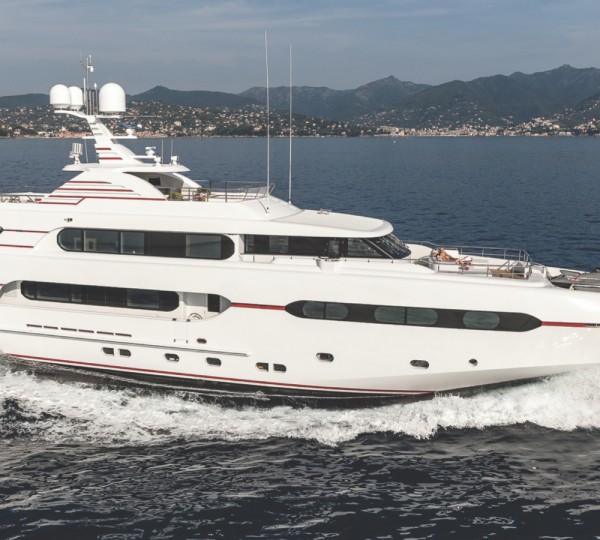
Sunrise Yachts
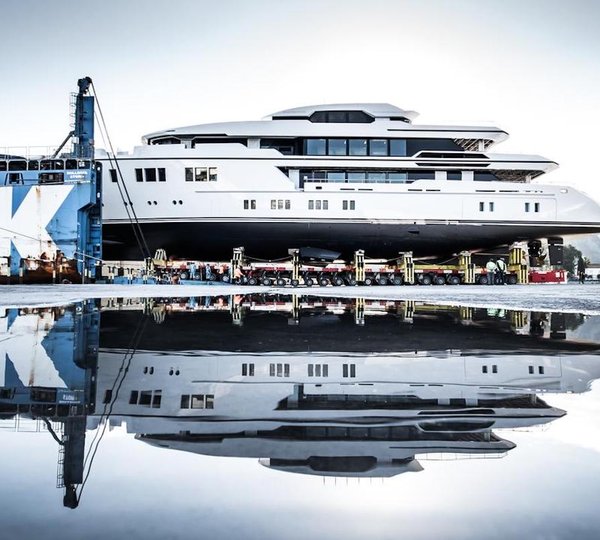
63M CUSTOM SUPERYACHT
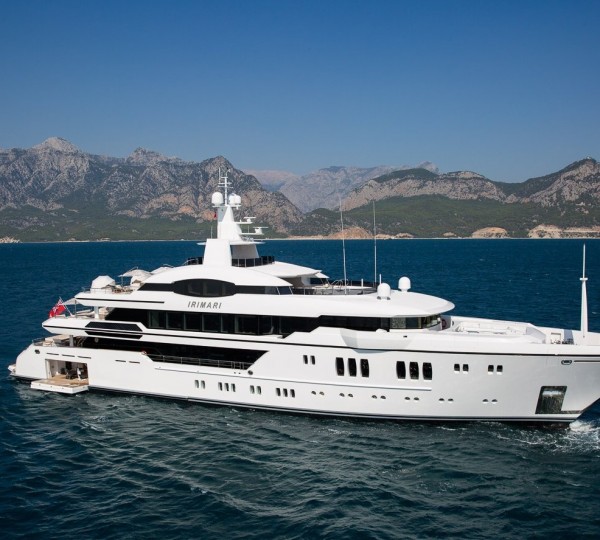
5th Moscow Boat Show, March 20-25, 2012
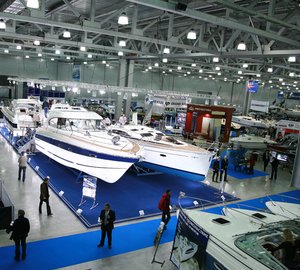
5th International exhibition of boats and yachts Moscow Boat Show a Huge Success
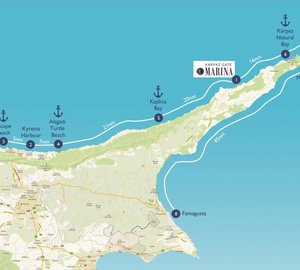
New Savings and Benefits for Russian Yacht Owners in 2014 announced by Karpaz Gate Marina
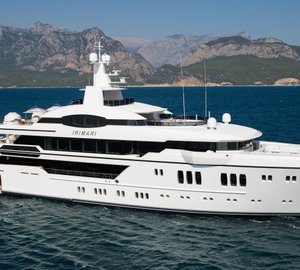
Recently delivered 63m Sunrise Super Yacht IRIMARI to make world premiere at MYS 2015
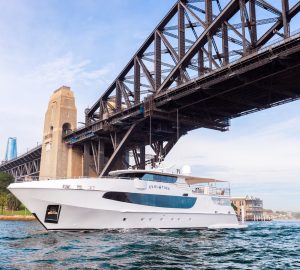
39m luxury yacht EVOLUTION for charter on Australia’s east coast
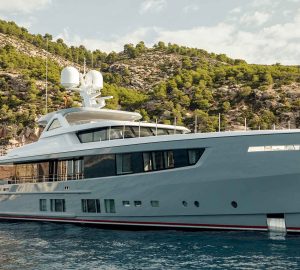
Charter Special on board 36m luxury yacht CALYPSO I from Italy to Greece
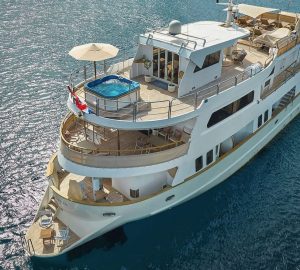
Croatian charter yacht LA PERLA offering 10% discount on exclusive vacations in the Adriatic
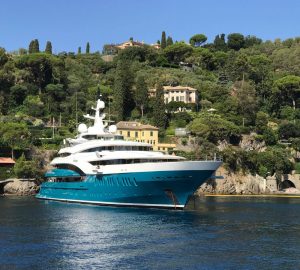
Charter a yacht during the Monaco Historic and F1 Grand Prix festivals and soak up the atmosphere from on deck
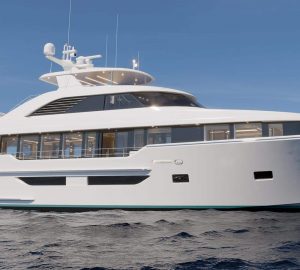
Westport announce the first hull of their 36m W117 range is nearing completion

Superyacht LAUNCHPAD previously Feadship 1010 delivered
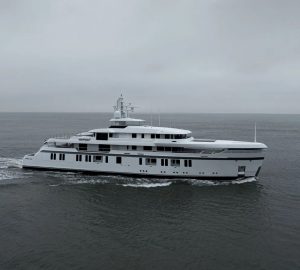
65m Feadship superyacht PROMISE.D delivered
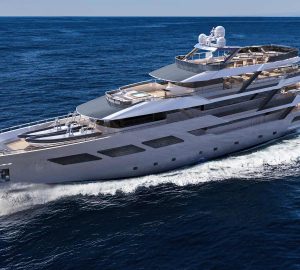
Discover our Top 10 brand new yachts available for charter worldwide this year
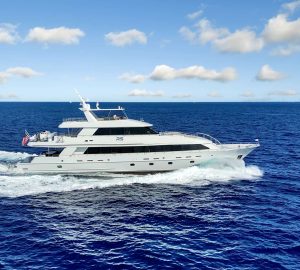
Florida charter yacht REAL SUMMERTIME offering 10% discount
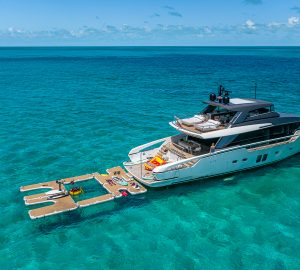
Discover summer in New England aboard a luxury charter yacht: Escape to this beautiful northeast corner of the USA
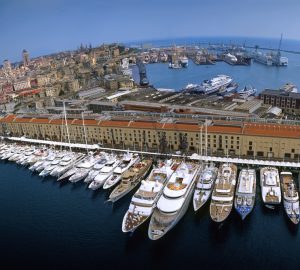
Looking ahead to the 2024 MYBA Charter Show in Genoa
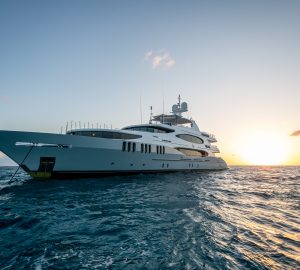
Last minute yacht charter deals in the Bahamas
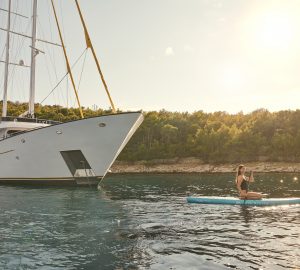
49m sailing yacht ANIMA MARIS is offering discounted rates for the remaining summer weeks in Croatia
You are using an outdated browser. Please upgrade your browser or activate Google Chrome Frame to improve your experience.
- Link to search page
- US: +1 (561) 833 4462
- US: +1 (206) 209-1920
- MC: +377 99 90 74 63
Yachts for Sale Moscow
We currently have no yachts to show. Please check back again soon.

- Weather
Search location by ZIP code
Cape coral yacht club community center set for 'key west-inspired' makeover.
- Copy Link Copy {copyShortcut} to copy Link copied!

GET LOCAL BREAKING NEWS ALERTS
The latest breaking updates, delivered straight to your email inbox.
The new Cape Coral Yacht Club is getting an "Old Florida" facelift. Cape Coral City Council members decided on a "Key West aesthetic" for the community center.
At Tuesday's Cape Coral City Council meeting, developers presented three design options for the new community center at the Cape Coral Yacht Club. The yacht club was destroyed by Hurricane Ian.
Developers described option one as a "Key West-inspired- aesthetic". Number two is very similar to the original yacht club building with wood and stone features. Option three is a more modern design. Three council members, including Bill Steinke, Robert Welsh and Jessica Cosden voted for option two.
"I think it's important that we stick to what we talked about. I don't think we made a promise, but I think we talked about incorporating the old building in this design," said District 7 Council member Jessica Cosden.
Five council members, including Mayor John Gunter, Dan Sheppard, Tom Hayden, Richard Carr, and Keith Long voted for option one.
"I just appreciate the aesthetic of the old Key West. I think we should also keep in mind; we just had a discussion at the CRA meeting, I believe, with regards to keeping the coastal theme in that particular area. I think we utilize the yacht club plans as a reference for that," said District 6 Council member Keith Long.
No one voted for the third option.
This means developers will move on with option one. Cape Coral City Council will continue to discuss design plans in two upcoming meetings on April 2 and May 7.
The new community center will be 2 stories totaling 47,000 square feet. It will have plenty of space for events in its ballroom, multi-purpose hall and meeting spaces. It will also have a kitchen, bathrooms and space for retail. Designs also show a wrap-around balcony and open foyer.
A spokesperson with the City of Cape Coral said the deconstruction process has begun in preparation for the demolition of the buildings. According to the city's website, demolition is supposed to begin next month.
Russia and the Western Far Right: Introduction
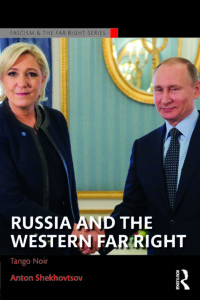
Introduction *
In the recent few years, there has been a growing concern in the West about the convergence or, at least, marriage of convenience between Vladimir Putin’s Russia and far-right forces in the West, most notably in Europe. Indeed, we have witnessed the increasing number of far-right politicians’ statements praising Putin’s Russia and contacts between the Western far right and Russian officials and other actors.
Concerns about these developments seem to be even more pronounced given the present condition of the West characterised – among many other ills – by the threat of terrorist attacks, migration and refugee crises, austerity policies, the Eurozone crisis and perceived lack of effective leadership. Moscow’s apparent cooperation with the far right, which blame liberal-democratic governments for the West’s woes, is often interpreted, especially in the Western mainstream media, as an attempt to weaken the West even further and undermine liberal democracy internationally. For example, an article in Foreign Policy argues that ‘Russian support of the far right in Europe has [to do] with [Putin’s] desire to destabilize European governments, prevent EU expansion, and help bring to power European governments that are friendly to Russia’. An article in The Economist presumes that the rise of the far right ‘is more likely to influence national politics and to push governments into more Eurosceptic positions’ and this will make it harder ‘for the Europeans to come up with a firm and united response to Mr Putin’s military challenge to the post-war order in Europe’.
Are these fears and anxieties regarding Moscow’s intentions or expectations justified? Does Putin’s Russia – by cooperating with illiberal and isolationist politicians and activists in the West – pursue policies seeking to undermine Western liberal-democratic governments and weaken Western unity? At the same time, why has Putin’s Russia recently become a focal point for many Western far-right parties and organisations and what do they expect from cooperation with Russia? These questions constitute some of the main issues addressed in this book.
However, they cannot be pursued out of a more general context. Thus, before I proceed with a discussion of the existing literature on the subject and outline the main hypotheses and structure of the book, I will provide this general context by giving a brief overview of Russia’s contemporary relations with the West, on the one hand, and surveying the contemporary far-right milieu, on the other, as well as explaining major concepts and terms used throughout the book.
Re-emergence of the Russian challenge
After the demise of the Soviet Union in 1991, the West welcomed Russia as a democratising state and embraced its apparent desire to integrate into the Western markets and political institutions. As a legal successor of the Soviet Union, post-Soviet Russia assumed the Union’s seat in the United Nations (UN), including the permanent seat in the UN Security Council, thus retaining the powerful instrument of exerting international influence. The European Economic Community and, later, the European Union (EU) became Russia’s main trading partner; Russia joined the Council of Europe (CoE) in 1996 and was admitted into the Group of Seven (better known as G7), the elite club of major industrialised countries that, consequently, became G8 in 1997. The same year, the NATO-Russia Permanent Joint Council was created and then replaced, in 2002, by the NATO-Russia Council, ‘a mechanism for consultation, consensus building, cooperation, joint decision and joint action, in which the individual NATO member states and Russia work as equal partners on a wide spectrum of security issues of common interest’. It appeared that – recalling the intellectual movements in the Russian Empire in the nineteenth century – the Russian Westernisers ( zapadniki ) eventually won over the Slavophiles ( slavophily ), the adherents of Russia’s authoritarian ‘special path’.
In reality, however, the relations between the West and Russia already in the 1990s were a cynical case of (self-)deception. While presenting itself as a striving liberal democracy, Russia occupied part of post-Soviet Moldova and backed the creation of an unrecognised state of Transnistria in 1992. In 1994–1996, Russian armed forces ruthlessly suppressed the Chechen separatists during the First Chechen War. None of these developments hampered Russia’s joining the CoE. Perhaps predictably, Russia has failed to honour some of the most important obligations and commitments that it undertook when it joined the CoE: it has not ratified Protocol No. 6 to the European Convention on Human Rights concerning the abolition of the death penalty; neither has Russia denounced the concept of ‘near abroad’ that effectively identified the other former Soviet republics as Russia’s zone of special influence; nor has Russia withdrawn its troops from Transnistria although it officially agreed to do it first by 1998 and, later, by the end of 2002. The CoE would repeatedly reprimand the Russian authorities over the non-fulfilment of their obligations and commitments, but Russia ignored the appeals and went unpunished.
Western liberal progressivists assumed that it was necessary to be patient with Russia: its pace of reforms might not be as fast as that of Poland or Hungary, but Russia’s integration into the capitalist market and international institutions would put the country firmly on the track democratising political reforms. This assumption failed miserably.
In the 1990s, Russia’s transition from a socialist planned economy to a capitalist market economy turned into a catastrophe for the Russian society. As David Satter put it, the course of reforms in Russia was shaped by a set of attitudes that included ‘social darwinism, economic determinism and a tolerant attitude toward crime’. While the population became impoverished, money was concentrated ‘in the hands of gangsters, corrupt former members of the Soviet nomenklatura, and veterans of the underground economy. Resources were controlled by government officials’. The Russian state itself turned into what can – in an exaggerated form – be called ‘a mafia state’. Ironically, the first noteworthy assessment of Russia as a mafia state originated from Russia’s first president Boris Yeltsin himself: in 1994, he publicly described his own country as the ‘biggest mafia state in the world’ and the ‘superpower of crime’. Behind these sensationalist terms was the fact that [int he words of Serguei Cheloukhine and Maria R. Haberfeld]:
Corruption in Russia has penetrated the political, economic, judicial and social systems so thoroughly that has ceased to be a deviation from the norm and has become the norm itself . By pursuing poorly thought-out actions during its transition to a market economy [in the 1990s], the state became a generator of crime ; in other words, the authorities became criminal-based institutions generating a social behaviour.
All-permeating corruption became a major foundation of the ‘virtuality’ of Russia as a democratic state. This ‘virtuality’ was further advanced by the development of a new class of people who helped the ruling elites run the country, namely political technologists, ‘ultra-cynical political manipulators who created a fake democracy because Yeltsin couldn’t build a real one, and who distracted the population with carefully scripted drama because the energy wealth had temporarily stopped flowing’. In a sense, political technology in Yeltsin’s Russia became a substitute for efficient political institutions, just as corruption was a substitute for working economic institutions that Yeltsin failed to build after the demise of the Soviet Union.
The West played a detrimental role in this process: not only did Western capitals ignore the negative developments in Russia, ‘the Western community [also] allowed the Russian elite to turn its banks and business structures into machines for laundering Russian dirty money. And the West’s political and business circles understood perfectly what was going on’.
Western governments did heavily criticise the Russian authorities over their actions during the Second Chechen War that started in 1999. There were strong statements and speculations about Western economic sanctions against Russia. US President Bill Clinton threatened that Russia would ‘pay a heavy price’ for its actions, while UK Foreign Secretary Robin Cook compared Russia’s tactics in Chechnya to those of Yugoslavia’s President Slobodan Milošević in Kosovo – this was a menacing statement considering that NATO allies had bombed Milošević’s Yugoslavia for the persecution of the Albanian population in Kosovo. However, no matter how strong the words of Western leaders were, none of their statements was accompanied by any policy initiative. The head of the Organisation for Security and Cooperation in Europe (OSCE) acknowledged there was little that the organisation could do ‘beyond attempting to put moral pressure on Moscow’. The Parliamentary Assembly of the CoE (PACE) suspended Russia in 2000 because of the human rights violations in Chechnya, but reinstated it within less than a year, despite the fact that Russia continued to violate human rights in the insurgent region.
After Putin replaced Yeltsin as Russian president, the situation gradually worsened. Not only did Russia maintain military presence in Moldova’s Transnistria in violation of its commitments and invade Georgia in 2008 without any consequences from the West, but Putin’s regime became also increasingly right-wing, authoritarian, patrimonial and anti-Western.
To thwart the attempts of some countries in the ‘near abroad’, in particular Georgia, Moldova and Ukraine, to move closer to the West, Moscow drew upon the Soviet experience of so-called active measures ( aktivnye meropriyatiya ). According to one Soviet top-secret counterintelligence dictionary, active measures are ‘actions of counterintelligence that allow it to gain an insight into an enemy’s intentions, forewarn his undesirable moves, mislead the enemy, take the lead from him, disrupt his subversive actions’. Active measures are implemented through ‘actions aimed at creating agent positions in the enemy camp and its environment, playing operational games with the enemy directed at disinforming, discrediting and corrupting enemy forces’. Oleg Kalugin, former Major General of the Komitet gosudarstvennoy bezopasnosti (Committee for State Security, KGB), described active measures as ‘the heart and soul of the Soviet intelligence’:
Not intelligence collection, but subversion: active measures to weaken the West, to drive wedges in the Western community alliances of all sorts, particularly NATO, to sow discord among allies, to weaken the United States in the eyes of the people of Europe, Asia, Africa, Latin America, and thus to prepare ground in case the war really occurs. To make America more vulnerable to the anger and distrust of other peoples.
From a practical perspective, according to Richard Shultz and Roy Godson, active measures could be ‘conducted overtly through officially sponsored foreign propaganda channels, diplomatic relations and cultural diplomacy’, while covert political techniques included ‘the use of covert propaganda, oral and written disinformation, agents of influence, clandestine radios, and international front organizations’. Scientific progress and subsequent technological innovations since the Cold War have obviously contributed to the enhancement of both overt and covert political techniques.
Until 2014, the extent of Russia’s active measures in the West – perhaps with the exception of the Baltic states – was limited. Russian authorities preferred to use their personal contacts with Western leaders and economic cooperation to advance their interests in the West. Given the domination of postmodern Realpolitik in the West, the Kremlin was largely successful in its endeavours, while Putin’s apparently friendly relations with Silvio Berlusconi (Prime Minister of Italy in 1994–1995, 2001–2006 and 2008–2011), Gerhard Schröder (Chancellor of Germany in 1998–2005) and, to a lesser extent, Nicolas Sarkozy (President of France in 2007–2012) allowed Moscow and Western capitals to ‘smooth away’ their differences to the disadvantage of human rights and political freedoms in Russia, as well as national security of the countries in the ‘near abroad’. In 2009, even the Obama administration, following the Russian invasion of Georgia, attempted to improve relations with Russia with the help of a so-called ‘reset’, although it did not collaborate as closely.
After Russia had occupied and then annexed Ukraine’s Autonomous Republic of Crimea and invaded Eastern Ukraine in 2014, some Western leaders belatedly realised – often without admitting their own complacency – that Putin’s regime became too assertive and defiant, as well as directly threatening European security and challenging the post-war order. Russia was suspended from the PACE and G8, while the EU, United States, Canada, Norway, Switzerland and some other nations imposed political and economic sanctions on Russia and its officials over the aggression against Ukraine.
Not only did Moscow respond with anti-Western sanctions, but also Russian state-controlled structures as well as groups loyal to the Kremlin dramatically stepped up active measures and other subversive activities inside the West. According to a report by the Chatham House, Putin’s Russia has used ‘a wide range of hostile measures’ including ‘energy cut-offs and trade embargoes, . . . subversive use of Russian minorities, malicious cyber activity of various forms, and the co-option of business and political elites’. A report by the Center for European Policy and Analysis argues that, in the West, the Kremlin ‘promotes conspiratorial discourse and uses disinformation to pollute the information space, increase polarization and undermine democratic debate. Russia’s actions accelerate the declining confidence in international alliances and organizations, public institutions and mainstream media’. Moreover, Russia ‘exploits ethnic, linguistic, regional, social and historical tensions, and promotes anti-systemic causes, extending their reach and giving them a spurious appearance of legitimacy’.
To a certain extent, today’s cooperation between various Russian pro-Kremlin actors and Western far-right politicians may be seen as an integral part of Moscow’s active measures in the West. However, it seems to be oversimplification to limit the relations between Russia and the Western far right to the Kremlin’s active measures, at least because such an assumption would reduce the agency of the other major element of this relationship, namely the far right itself.
European far-right milieu
The term ‘far right’ is used here as an umbrella term that refers to a broad range of ideologues, groups, movements and political parties to the right of the centre right. It is probably impossible to define an umbrella term such as ‘far right’ as anything less vague than a range of political ideas that imbue a nation (interpreted in various ways) with a value that surpasses the value of human rights and fundamental freedoms. Thus, the concept of a nation is central to all manifestations of the far right, but they differ in the ways they imagine the ‘handling’ of a nation.
The exponents of fascism, which was the very first far-right ideology to have acquired worldwide significance, offered arguably the most radical approach to ‘handling’ a nation. According to Roger Griffin, fascism can be defined as
a revolutionary species of political modernism originating in the early twentieth century whose mission is to combat the allegedly degenerative forces of contemporary history (decadence) by bringing about an alternative modernity and temporality (a ‘new order’ and a ‘new era’) based on the rebirth, or palingenesis, of the nation. Fascists conceive the nation as an organism shaped by historic, cultural, and in some cases, ethnic and hereditary factors, a mythic construct incompatible with liberal, conservative, and communist theories of society. The health of this organism they see undermined as much by the principles of institutional and cultural pluralism, individualism, and globalized consumerism promoted by liberal ism as by the global regime of social justice and human equality identified by socialism in theory as the ultimate goal of history, or by the conservative defence of ‘tradition’.
In the two twentieth-century European regimes, which successfully implemented essential tenets of fascism on the state level, namely Benito Mussolini’s Italy and Adolf Hitler’s Third Reich, fascisms differed largely in that Italian Fascists conceived the nation in ethnic terms, while the German National Socialists articulated their idea of the nation in racial terms, or to be more precise, in terms of the Volk , a metaphysical notion incorporating the concepts of race, German history and culture. The difference in these interpretations of the nation as the core concept for the definition of fascism allows for distinguishing a very specific form of fascism, namely National Socialism or Nazism, that emphasises a specifically racist or völkische interpretation of one’s own nation.
After the military defeat of the Third Reich in 1945, fascism was forced to evolve into three major forms. Organisations that still wanted to participate in the political process had to dampen their revolutionary ardour rather dramatically and translate it ‘as far as possible into the language of liberal democracy’. This strategy gave birth to the non-fascist phenomenon of radical right-wing political parties. Revolutionary ultranationalists, on the other hand, retreated to the fringes of sociopolitical life in the West. As they still remained true to the idea of an alternative totalitarian modernity underpinned by the palingenesis of the nation – however unrealistic its implementation was in the post-war period – their ideas and doctrines were termed as neo-fascist (but sometimes simply fascist) or neo-Nazi. The third form of post-war fascism appeared only at the end of the 1960s and was associated, first, with the French New Right (or Nouvelle Droite ) and, later, with the European New Right. This is a movement that consists of clusters of think-tanks, conferences, journals, institutes and publishing houses that try to modify the dominant liberal-democratic political culture and make it more susceptible to a nondemocratic mode of politics. Importantly, the European New Right has focused almost exclusively on the battle for hearts and minds rather than for immediate political power. As biological racism became totally discredited in the post-war period, the European New Right came up with the idea of ethno-pluralism arguing that peoples differed not in biological or ethnic terms but rather in terms of culture. Naturally, the above-mentioned forms of the far right thought need to be treated as ‘ideal types’ in the Weberian sense of the term. The boundaries between them are often blurred, while their various permutations – including those adopting elements of other, non-nationalist ideologies – embodied in the plethora of groups, movements and organisations have acquired new names such as national-revolutionary and national anarchist movements, racial separatism, Radical Traditionalism, national communism, Identitarian Movement, Third Position, neo-Eurasianism, etc.
Radical right-wing political parties are arguably the most widespread form of far-right politics today. Michael Minkenberg defines right-wing radicalism as ‘a political ideology, whose core element is a myth of a homogeneous nation, a romantic and populist ultranationalism directed against the concept of liberal and pluralistic democracy and its underlying principles of individualism and universalism’. He argues that ‘the nationalistic myth’ of right-wing radicalism ‘is characterized by the effort to construct an idea of nation and national belonging by radicalizing ethnic, religious, cultural, and political criteria of exclusion and to condense the idea of nation into an image of extreme collective homogeneity’.
Cas Mudde provides yet another insightful interpretation of what he calls ‘radical right-wing populism’ suggesting that it can be defined as a ‘combination of three core ideological features: nativism, authoritarianism, and populism’. As Mudde argues, nativism ‘holds that states should be inhabited exclusively by members of the native group (“the nation”) and that non-native elements (persons and ideas) are fundamentally threatening to the homogenous nation-state’; authoritarianism implies ‘the belief in a strictly ordered society, in which infringements of authority are to be punished severely’; and populism ‘is understood as a thin-centred ideology that considers society to be ultimately separated into two homogeneous and antagonistic groups, “the pure people” versus “the corrupt elite”’.
There is less academic consensus on the differences between the radical right and the extreme right, and, for example, French and German scholars of far-right politics use the terms like droite radicale or Rechtsradikalismus less often than the terms extrême droite or Rechtsextremismus when they refer to the political phenomena that, especially in the Anglo-Saxon academic world, would generally be distinguished between right-wing radicalism (or radical right-wing populism) and right-wing extremism. In this book, this distinction exists and implies that the difference between radical right-wing and extreme right-wing movements and parties is their attitude towards violence as an instrument of achieving political goals: the former reject it, while the latter tolerate or even embrace it.
The blurring of the boundaries between various forms of far-right politics is also reflected in the ideological heterogeneity of the electorally most successful far-right parties of today, namely the radical right-wing populist parties. Many of these parties have long political histories, and, over the years, they have integrated many activists coming from the movements and organisations of varying degrees of radicalism or extremism. Activists who have fascist, neo-Nazi or extreme-right background may and usually do moderate under the pressure of the party leadership who – for political or tactical reasons – believe that extremist ideas and rhetoric will be harmful for electoral success.
Indeed, the deradicalisation process has become a common stage for the most successful European far-right parties today. The Norwegian Fremskrittspartiet (Progress Party), which was considered a radical right-wing party in the past, has gradually removed or toned down most of its hardliners and now perhaps cannot be even considered a far-right party anymore. In the European Parliament, the Dansk Folkeparti (Danish People’s Party) and Perussuomalaiset (The Finns) prefer to cooperate with conservative parties such as the UK’s Conservative Party and Poland’s Prawo i Sprawiedliwość (Law and Justice), rather than with the radical right-wing populists represented, for example, by France’s Front National (National Front, FN), Austria’s Freiheitliche Partei Österreichs (Freedom Party of Austria, FPÖ) or Italy’s Lega Nord (Northern League, LN). However, the FN, FPÖ and LN have taken steps to moderate too. Under the leadership of Marine Le Pen, the FN even expelled her father and the FN’s long-time President Jean-Marie Le Pen for his radicalism. In the recent years, Hungary’s radical right-wing Jobbik party, too, has considerably toned down its anti-Semitic and anti-Roma rhetoric, and the deradicalisation strategy has proved to be relatively successful: at the time of the writing, Jobbik is the second most popular party in Hungary.
There is a historical precedent for this process: the most notable early example of deradicalisation of the far-right is the refashioning of the fascist Movimento Sociale Italiano (Italian Social Movement) into a ‘post-fascist’ party in the late 1980s and early 1990s. This was followed by the expulsion of right-wing extremists and transformation into the national-conservative Alleanza Nazionale (National Alliance) in 1995, and, eventually, the merger of the Alleanza Nazionale into Silvio Berlusconi’s now defunct centre-right Popolo della Libertà (People of Freedom) in 2009.
Deradicalisation has contributed to the growing popular support for the ‘moderated’ radical right-wing parties, allowing them to enter sectors of the political spectrum that mainstream parties have long abandoned. Compared to the 1990s, the ‘moderate’ radical right now have even more appeal to liberal voters concerned about identity issues, to the working class on labour and immigration issues, and to conservative voters anxious to preserve so-called traditional values.
Doubtlessly, deradicalisation is not a mandatory condition for the electoral success of the far right, which is corroborated by the electoral fortunes of the Greek neo-Nazi Laïkós Sýndesmos – Chrysí Avgí (Popular Association – Golden Dawn, XA) at the parliamentary elections in 2015 or the Slovak extreme-right Kotleba – Ľudová strana Naše Slovensko (Kotleba – People’s Party Our Slovakia) at the parliamentary elections in 2016. However, in general, the more extreme the far-right parties are, the less electoral support they have, and vice versa. Some of the more extreme far-right parties of today, for example, the British National Party (BNP), Italian Forza Nuova (New Force), Nationaldemokratische Partei Deutschlands (National-Democratic Party of Germany, NPD) or Svenskarnas parti (Party of the Swedes) have rarely had any tangible electoral successes. Even if many citizens of Western countries are seeking existential refuge in national identities, they are predominantly repulsed by blatant right-wing extremism and racist rhetoric. Some elements of the electorate of radical right-wing populist parties may clearly be driven by more extreme views than those espoused by their political favourites, but the majority of the voters do not seem to be racists or ultranationalists. Elaborating on the observation made by Laurent Fabius, France’s Socialist Prime Minister (1984–1986), who said in 1984 that the FN’s Jean-Marie Le Pen asked the right questions but came up with the wrong answers, one can suggest that the greater part of the electorate of radical right-wing parties make their electoral decisions because they are tempted by the right questions that the more moderate far-right politicians ask – about the efficiency of the liberal-democratic establishment, economic inequalities, job security, social cohesion, immigration, religious traditions and identity. Not that the far right give smart answers, but their defiant readiness to pose questions, some of which very few mainstream politicians would dare to address or even ask, bolsters their support.
The more support the radical right-wing populists have, the more opportunities they have to promote their visions and utopias in the socio-political environment in which political postmodernists are crushing despondent liberal progressivists, while disgruntled Western citizens are increasingly disaffected with the mainstream political class as a whole.
Research background
Until 2014, apart from occasional references to pro-Russian statements of some European far-right leaders, few scholars and experts observed a growing rapprochement between the Western far right and Putin’s Russia. Arguably the first investigation that reported on this development was a report titled ‘Russia’s Far-Right Friends’ and published in 2009 by the Hungary-based Political Capital Institute. On the basis of their research, its authors argued that ‘far-right parties in several eastern European countries [had] become prominent supporters of Russian interests and admirers of the Russian political-economic model’ and that, for Russia, ‘forming partnerships with ultranationalists could facilitate its efforts to influence these countries’ domestic politics . . . until Moscow finds an even more influential ally elsewhere on the political spectrum’.
In 2010, Angelos-Stylianos Chryssogelos analysed the foreign policy positions of the radical right-wing FN and FPÖ, as well as of the German left-wing populist Die Linke (The Left), and specifically focused on their attitudes towards the United States, transatlantic relations, NATO and Russia. He concluded that these parties were united in their aversion of NATO and American influence in Europe, but, at the same time, they looked favourably at Putin’s Russia. According to Chryssogelos, ‘populist parties see Russia as a source of energy and military clout as well as an attractive partner with similar cultural traits as Europe has’, while by discarding ‘issues of human rights and democracy in their relations with Russia’, these ‘populists reinforce their vision of sovereign nation states furthering their interests without reference to universal values or prior institutional commitments’. The author, however, did not elaborate on the Russian agenda behind the cooperation with the European far right.
The international expert and academic community in general started to pay attention to the relations between Russia and the Western far right in 2013–2014. For example, Marcel Van Herpen noted that West European far-right parties were moving away from ‘their traditional anti-communist and anti-Russia ideologies, with many expressing admiration – and even outright support’ – for Putin’s regime. Van Herpen asserted that, since Putin’s regime did not ‘openly reject democracy or explicitly advocate a one-party state’, it might serve as a model for the far-right parties, which could not ‘openly advocate an authoritarian regime or a one-party system’. Moreover, through its specific policies and practices, Putin’s regime was able to demonstrate to the illiberal European political forces ‘how to manipulate the rules of parliamentary democracy . . . to serve authoritarian objectives’.
The Political Capital Institute continued working on the phenomenon of ‘Russian influence in the affairs of the far right’ seen as ‘a key risk for Euro-Atlantic integration at both the national and the [European] Union level’. The Institute’s 2014 report distinguished – in the context of their views on Russia – between ‘committed’, ‘open’ and ‘hostile’ European far-right parties. The ‘committed’ category would include parties that openly professed their sympathy for Russia. The ‘open’ category would refer to parties that could either ‘show sympathy based simply on considerations in relation to foreign and economic policy and realpolitik, without regard to Putin’s economic and social regime as a model’, or ‘in most cases display a negative or neutral attitude toward Russia’, but at the same time would ‘support the Russian position [on some important issues] even in the absence of genuine motivation’. Finally, the ‘hostile’ category would include far-right parties coming ‘primarily from countries in conflict with Russia’. In 2015, the Political Capital Institute also published four collaborative country-specific reports on the relations between various Russian stakeholders and the far right in Hungary, Greece, France and Slovakia. Marlène Laruelle, who co-authored the France-related report, edited an insightful collection of chapters that looked at the relations between Russia and the far right through the perspective of the spread of the ideology of Russian neo-Eurasianism, as well as focusing, in particular, on the cases of France, Italy, Spain, Hungary and Greece.
Aims and structure of the book
Despite the rising number of journalistic investigations, expert analyses and academic studies of the phenomenon, we still lack a general picture of the relations between Russia and the Western far right, and this book is set to address considerable gaps in our understanding of this under-researched yet important aspect of international relations.
Relations between Russia and the Western far right are a complex and multi-layered phenomenon which cannot be explained by any single causal factor. The overarching hypothesis of this book is that each side of this relationship is driven by evolving and, at times, circumstantial political and pragmatic considerations that involve, on the one hand, the need to attain or restore declining or deficient domestic and international legitimacy and, on the other hand, the ambition to reshape the apparently hostile domestic and international environments in accordance with one’s own interests. Putin’s corrupt and authoritarian regime enjoyed, especially during his first presidential term (2000–2004) domestic and international legitimacy, but started to feel increasingly threatened by the processes of democratisation in Russia’s immediate neighbourhood as it perceived these processes as a Western attempt to bring about a regime change in Russia. These assumptions on the part of the Russian ruling elites led to their gradual opening to Western far-right politicians who had tried to court Putin’s regime even before Russian pro-Kremlin actors decided to turn to them to use them, first, as one of the sources of political legitimacy in the domestic environment and, thus, consolidation of the regime, then as tools of Moscow’s foreign policy in the Russian neighbourhood, and, eventually, as an instrument of destabilisation of Western societies. In the latter case, Moscow’s intentions are, to a certain degree, underpinned by the understanding that the far right are more potent today than they have ever been before in the post-war era and are posing a growing threat to Western liberal democracy. Moreover, radical right-wing parties no longer need to vindicate themselves and be at pains over proving political eligibility of their ideas. Today, they refer to Putin’s Russia as the model of an alternative political order opposing liberal democracy. By expressing their ideological kinship with contemporary Russia, which is far from being a fringe country, and winning different forms of support from Moscow, radical right-wing parties may claim alternative political legitimacy and represent themselves not simply as the opposition to the mainstream parties, but essentially as the alternative mainstream.
This book aims to explore relations between various Russian actors and the far right in all their complexity by scrutinising their most important aspects. The fact that some initial analyses of the pro-Russian sentiments of the contemporary Western far right started to appear only in 2009–2010 does not imply that these sentiments did not exist before, and it is almost impossible to understand them without examining their nature and historical manifestations. Thus, Chapter 1 goes back as far as the interwar period to show that, even then, particular elements of the far right sided with Russia, and then explores how the far-right pro-Russian attitudes developed in the West during the Cold War, as well as pointing out that Soviet Russia was often prone to use the Western far right for its own political benefits. Chapter 2 discusses the active cooperation, as well as the motivations behind this cooperation, between Russian and Western far-right politicians after the fall of the Soviet Union; while their attempts at building more structured relationships largely failed at that time, they facilitated and contributed to the deepening of the relations between Russian pro-Kremlin actors and the Western far right when more favourable conditions arose in the second half of the 2000s. The emergence of these conditions was determined by the internal evolution of Putin’s regime from an authoritarian kleptocracy into an anti-Western right-wing authoritarian kleptocracy in the second half of the 2000s, and Chapter 3 discusses this evolution and demonstrates how particular elements of the Western far right embraced it. Chapters 4 and 5 consider two areas of dynamic cooperation between various Russian actors and Western far-right politicians and organisations aimed at supporting and consolidating alternative institutions that aspire to challenge and undermine liberal-democratic practices and traditions: electoral monitoring and the media. Chapter 6 looks at openly pro-Russian activities that European far-right movements and organisations have carried out in their national contexts, and identifies several types of structures and individuals who furthered cooperation between the European far right and the Russian actors linked to the Kremlin. Finally, Chapter 6 explores the performance of European far-right politicians on high-profile discussion platforms in Moscow and at sessions of the European Parliament in Strasbourg and Brussels, and analyses the narratives that they promote within these settings.
This book not only aims to provide deeper insights into the cooperation between Putin’s Russia and representatives of the Western far right, but will also inspire further, more narrow research into this phenomenon and its particular aspects. The urgency of these endeavours cannot be overstated. The Western liberal-democratic order, being challenged by destructive developments from outside and inside Western societies themselves, faces hard times. The Western world, to be sure, is strong enough to resist the challenges of either the far right or Putin’s regime. Individually, neither of these forces can bring about the collapse of the West as we know it. But we witness today that Putin’s Russia gradually joins forces with the far right against liberal democracy; they reinforce each other, and their coalition may be able to weaken and destabilise the West and, especially, the EU.
* This is an unreferenced version of the Introduction. All the references can be found in the published book .

IMAGES
COMMENTS
Yacht Mumbai, Hill Road, Bandra West; View reviews, menu, contact, location, and more for Yacht Restaurant.
Yacht. Unclaimed. Review. Save. Share. 6 reviews #2,248 of 7,599 Restaurants in Mumbai ₹. Hill Road, Near St. Andrews Church, Bandra West, Mumbai India +91 22 2642 2718 + Add website + Add hours Improve this listing. See all (10) 6.
Menu - Check out the Menu of Yacht Hill Road, Bandra West, Mumbai at Zomato for Delivery, Dine-out or Takeaway.
Yacht. Unclaimed. Review. Save. Share. 6 reviews #2,249 of 7,599 Restaurants in Mumbai $. Hill Road, Near St. Andrews Church, Bandra West, Mumbai India +91 22 2642 2718 + Add website + Add hours Improve this listing. See all (10) There aren't enough food, service, value or atmosphere ratings for Yacht, India yet.
Yacht, Bandra West, Mumbai, North Indian, Chinese, Seafood, 9 Photos. Rated 3.9 based on 184 Ratings and Reviews. Get Restaurant Menu, Address, Contact Number, Photos ...
Menu for Yacht, Bandra West, Mumbai - View the Menu for Yacht, Bandra West, Mumbai. Check out the Food Menu item prices of Yacht Yacht, Bandra West, Mumbai; View menu, reviews, customer ratings, contact number, customer selfies and more on magicpin.
Reclamation, Bandra West restaurants, Bandra Talao, Bandra West restaurants, Pali Hill, Bandra West restaurants, Linking Road, Bandra West restaurants Frequent searches leading to this page yacht bandra , 1 , yatch bandra , yacht restaurant mumbai maharashtra , yacht bar bandra
4/5 | 1 Reviews. Hill Road, Bandra West, Western Suburbs. ₹ 350 for two approx | Multicuisine. Open from 10:00 AM - 12:00 AM. About.
Yacht, Mumbai: See 6 unbiased reviews of Yacht, rated 4.5 of 5 on Tripadvisor and ranked #2,855 of 14,610 restaurants in Mumbai.
Yacht. Casual Dining .Cost for two: ₹900 Casual Dining Cost for two: ₹900 Bandra West, Mumbai.
The previous 'Permit Room' has now given way to 'Yacht Resto Bar' - written with a wave dividing it. Although the interiors are undergoing a 360-degree change, the menu more or less remains the same. So basically, you will still be able to have cheese omelette, kheema masala, schezwan chakna and chilli paneer, over a beer that costs ...
Upvote Downvote. India » Mahārāshtra » Mumbai » Bandra West. Dining and Drinking » Bar. Make sure your information is up to date. Plus use our free tools to find new customers. See 14 photos and 12 tips from 383 visitors to Yacht. "Beef chilly! Oh Dear God! For all beef lovers!"
yacht bandra mumbai • yacht bar & restaurant mumbai • yacht bar and restaurant mumbai • yacht, bandra mumbai • ... St Andrews Church (Bandra West) 6.8 "Paneer Pakodas + Double Omelettes + Salted Peanuts + Triple Chicken Shezwan Rice + Beer = Awesome! :-)" Praveen Kumar.
Yacht menu Hill Road, Bandra West, Western Suburbs, Mumbai: Check out the Menu for Yacht Hill Road, Bandra West, Western Suburbs, Mumbai.
I finally made it to Bandra's Yacht Bar, or Resto Bar as it is called now, last weekend after spending close to twenty years in the suburb. Yacht Resto Bar, is a small bar at the end of Hill Road and is located where the road forks towards Chimbai at one end and Bandstand at the other end. You can call it a ' dive bar ' out of politeness or ...
Order Food Online from Yacht Bandra West Bandra West and see it's menu for Home Delivery in Mumbai. Fastest delivery | No minimum order | GPS tracking. Set location Click to Choose Location. 0 Cart. ... Yacht. Indian, Chinese. Bandra West--Too Few Ratings. Currently ₹500 for two; Uh-oh! The outlet is not accepting orders at the moment.
Vipesh Ghadi. 22 reviews436 Followers. Follow. 3. DINING. 3 months ago. Worth the the hype in terms of food and reasonable price, but the seating arrangement is very congested and is over crowded especially on weekends where there is no control on crowd management at all. The bombil fry ordered was literally tasteless.
On Sept. 3, 2020, the staff of a $90 million yacht placed an order with a U.S. company for a set of luxury bathrobes that came to $2,624.35. For roughly two years before that, according to federal ...
Yacht Restaurant & Bar, Bandra West, Mumbai, , , Rated 4 based on 8 Ratings and Reviews. Get Restaurant Menu, Address, Contact Number, Photos, Services Offered, Maps ...
The four-day Russian yacht show event is currently scheduled to run from April 14-17 at the Moscow's Crocus exhibition centre. moscow boat show. MIBS is organised by the ITE Group and it is one of Russia's leading boat shows and is an internationally recognised superyacht event. The show covering everything from small parts and accessories ...
Every yacht for sale in moscow listed here. Every boat has beautiful hi-res images, deck-plans, detailed descriptions & videos.
West Drive Auto, Moscow, Russia. 149 likes. Описание
CAPE CORAL, Fla. — The new Cape Coral Yacht Club is getting an "Old Florida" facelift. Cape Coral City Council members decided on a "Key West aesthetic" for the community center.
In reality, however, the relations between the West and Russia already in the 1990s were a cynical case of (self-)deception. While presenting itself as a striving liberal democracy, Russia occupied part of post-Soviet Moldova and backed the creation of an unrecognised state of Transnistria in 1992. In 1994-1996, Russian armed forces ...